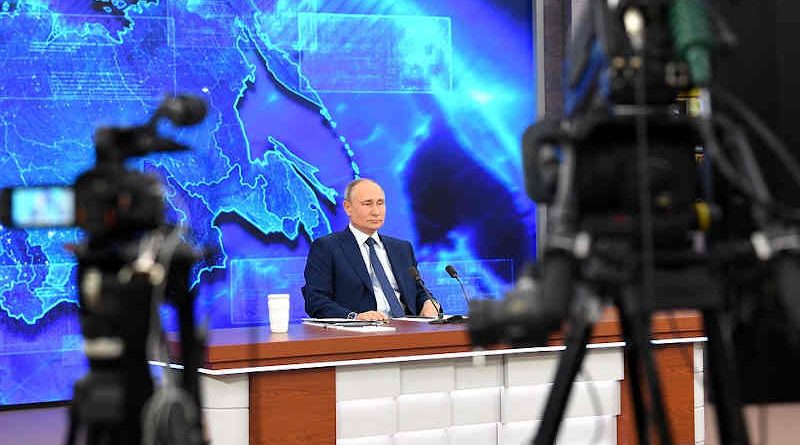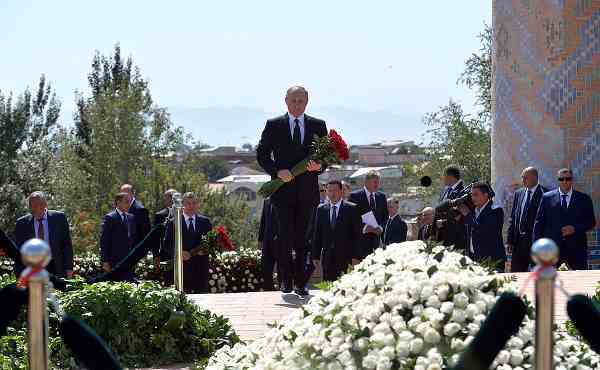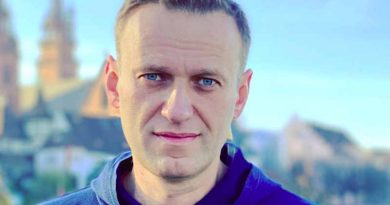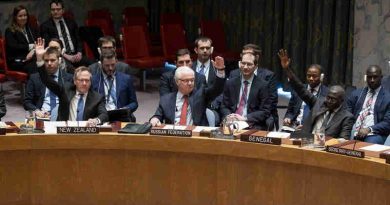New Law Allows Putin to Stay in Power Until 2036

The chattering classes argue that Putin’s attempt to usurp power through constitutional changes is, in fact, a constitutional coup.
By Rakesh Raman
The President of Russia Vladimir Putin has signed a legislation that will allow him to stay in power until 2036, while his second consecutive and fourth overall presidential term ends in 2024.
Putin, 68, signed the law on Monday (April 5) that resets his number of terms served, allowing him to extend his 20-year rule until he turns 83. According to Russia’s unaltered Constitution, Putin was supposed to step down in 2024.
Putin had dissolved his government in January 2020 before attempting to rewrite the Constitution. The Russian government had resigned allowing Putin to make necessary changes in Russia’s Constitution that – according to him – are inevitable for the development of the country.
Putin had arranged a dubious poll on July 1, 2020 to accept constitutional changes which would allow him to rule until 2036. An opposition leader Alexei Navalny refused to accept the results of the voting, saying that it was an illegitimate vote designed to legalize Putin’s presidency for life.
Navalny added that with the help of his supporters he will hold “street protests” against Putin. But Navalny was allegedly poisoned by Russia and he was jailed for two and a half years in a Russian penal colony in February for violating parole while recovering from the poisoning in Germany.
The chattering classes argue that Putin’s attempt to usurp power through constitutional changes is, in fact, a constitutional coup. Earlier, on June 1 last year, Putin had held a meeting with the leadership of the Central Election Commission and members of the working group on developing proposals for amending the Constitution.
In his presidential address delivered on January 15 last year to the Federal Assembly, Putin counted a number of areas in which the progress is required immediately. “We need to address large-scale social, economic, and technological tasks facing the country more quickly and without delay,” he said.
In order to achieve the developmental goals, he proposed to amend Russia’s Constitution with increased powers for the Parliament while maintaining a strong presidential system.
In 2018, Putin had won the presidential election to lead Russia for his second 6-year term. Putin has ruled the country as either President or Prime Minister since 1999. In the 2018 election, according to official results, he got more than 76% of the votes with an increase of 12% from his 2012 performance.
Putin’s nearest competitor Pavel Grudinin received just 12% of total votes. One of Kremlin’s staunchest critics Alexei Navalny, who was planning to challenge Putin in the election, was barred from the race.
Although Putin claims that Russia is a democratic country, most believe that Putin is an elected dictator who steals elections and uses other tactics to stay in power forever.
According to The Moscow Times, if elected in the next two elections, Putin would remain president until 2036, surpassing Josef Stalin as the longest-serving leader of Russia since Peter the Great.
The Moscow Times reports that former President Dmitry Medvedev is also granted the right to run two more times. Medvedev served in 2008-2012 when Putin was constitutionally mandated to step down after his first two consecutive terms. Putin served as prime minister during Medvedev’s presidency.
While protests against Putin continue in Russia, a Russian court fined Twitter for not taking down calls to protest. According to reports, the court found Twitter guilty on three counts of violating regulations on restricting unlawful content, ordering the company to pay three fines adding up to 8.9 million rubles (about $117,000).
By Rakesh Raman, who is a national award-winning journalist and social activist. He is the founder of a humanitarian organization RMN Foundation which is working in diverse areas to help the disadvantaged and distressed people in the society.





